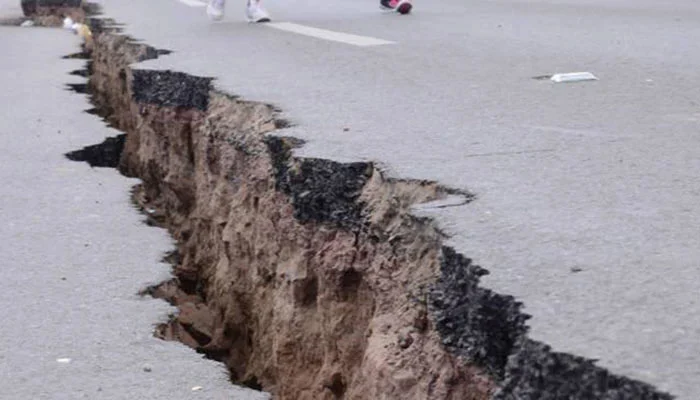EDITORIAL
The death toll has been rising steadily as rescue workers dig through the debris of what used to be bustling cities and towns. The disaster has left an estimated 45,000 people homeless and in need of immediate aid, according to the Turkish Disaster and Emergency Management Presidency.
The earthquake was a cruel reminder of the power of nature, and of how quickly our lives can be turned upside down. It also served as a wake-up call to the world, underscoring the importance of disaster preparedness and the need to build safer communities.
As the world watches with a heavy heart, aid organizations and governments around the world have been rushing to provide support to the affected communities. Search and rescue teams from across Turkiye have been working tirelessly to pull survivors from the rubble, while medical teams are providing emergency care to those who are injured.
In the aftermath of the earthquake, it’s important to remember that recovery is a long and challenging process, and that the affected communities will need continued support for many months, if not years, to come.
But as we offer our condolences and support to those affected by this tragedy, let’s also take a moment to reflect on the importance of disaster preparedness. It is imperative that we build safer communities and prepare for the worst so that we can save lives in the event of a natural disaster.
This can be achieved through better building codes and infrastructure, regular earthquake drills and education, and investment in disaster response and recovery. In Turkiye, for example, buildings constructed after 1999 are required to be built to higher seismic standards, and the government has launched a national earthquake early warning system, which provides vital seconds of warning before an earthquake strikes.
According to the United Nations Office for Disaster Risk Reduction, an investment of just $1 in disaster risk reduction can save up to $7 in post-disaster recovery and rehabilitation costs. This is a small price to pay when you consider the lives that can be saved and the communities that can be protected.
Disasters do not discriminate, and they can strike anywhere, at any time. It’s crucial that we all do our part in preparing for them, so that we can minimize the impact when they do occur.
In the face of this devastating earthquake, let’s come together to support the affected communities and work towards a safer, more prepared future.
In the face of natural disaster, it’s heartening to see Pakistan extend a helping hand to its neighbors Turkiye and Syria. The recent earthquake has left a trail of destruction in its wake, and people are frantically searching for their loved ones. In such trying times, it’s essential to have the support of other nations, and Pakistan has risen to the challenge.
On the night of Feb 6, the first relief flight from Islamabad took off for Turkiye. This flight carried a bevy of rescue experts, including sniffer dogs, search equipment, and a medical team consisting of army doctors, nursing staff, and technicians. The team was also equipped with a 30-bed mobile hospital, tents, and blankets to provide immediate medical assistance to the survivors.
The following day, another 51-member team comprising doctors, paramedics, and rescue workers was dispatched to Istanbul. The prime minister has also announced that another plane carrying medicines and other essential items is expected to take off soon. These efforts by Pakistan are commendable, and it’s hoped that more personnel and relief goods will continue to be sent to both countries as needed.
Syria, in particular, has been grappling with the aftermath of more than a decade of war. The earthquake has only added to its woes, and the country is in dire need of assistance. As a moral obligation, Pakistan should offer and ensure as much help as possible to get the country back on its feet. The prime minister’s relief fund for Turkiye, to which the federal cabinet has also contributed a month’s salary, should also be utilized to assist Syria.
Groups of volunteers and local NGOs who are well-versed in disaster response work can also play a critical role in the relief efforts. These groups can be assisted in traveling to the affected regions to help with the efforts, but such arrangements must be made in close coordination with the governments of Turkiye and Syria to avoid any disruptions to their own rescue and relief efforts.
The weather in the affected region has been particularly uncooperative, with snow, harsh cold, and rainfall making the job of rescuing survivors from collapsed buildings much more challenging. Snowfall has blocked roads and hampered communication infrastructure in many areas, making it challenging to move rescue teams to the affected regions. Electricity, internet, and gas outages have also been reported due to the damage to the utility infrastructure, making the task of rescue and relief operations even more daunting.
In conclusion, Pakistan’s efforts to assist Turkiye and Syria are commendable, and the world is watching. The country has a moral obligation to offer as much help as possible, and it’s hoped that more personnel and relief goods will continue to be sent. The job of rescuing survivors and providing relief to the affected regions will be a challenging one, but with the support of other nations, it can be accomplished.
Read more:
















